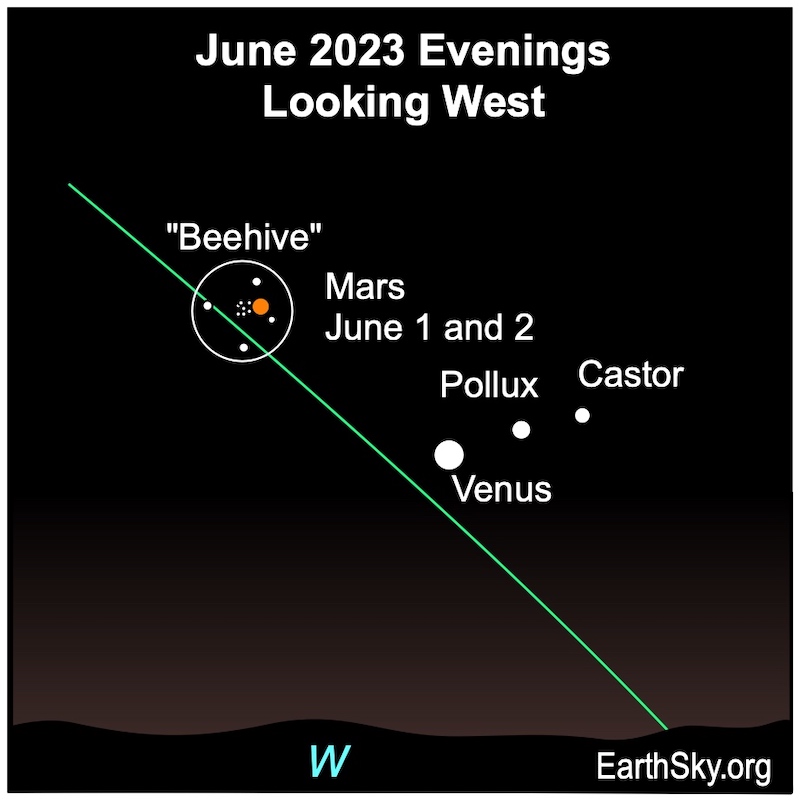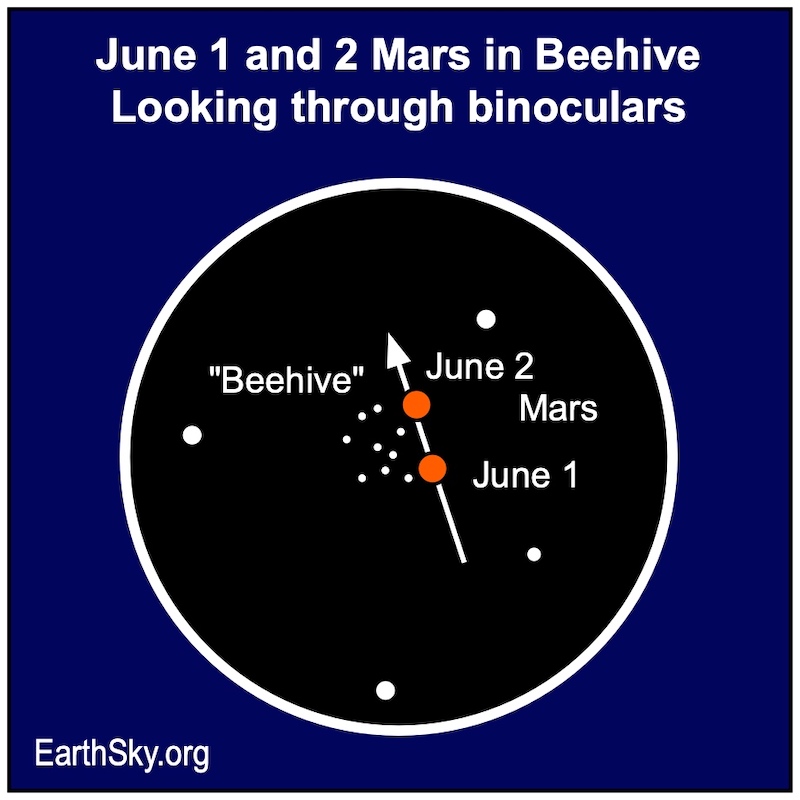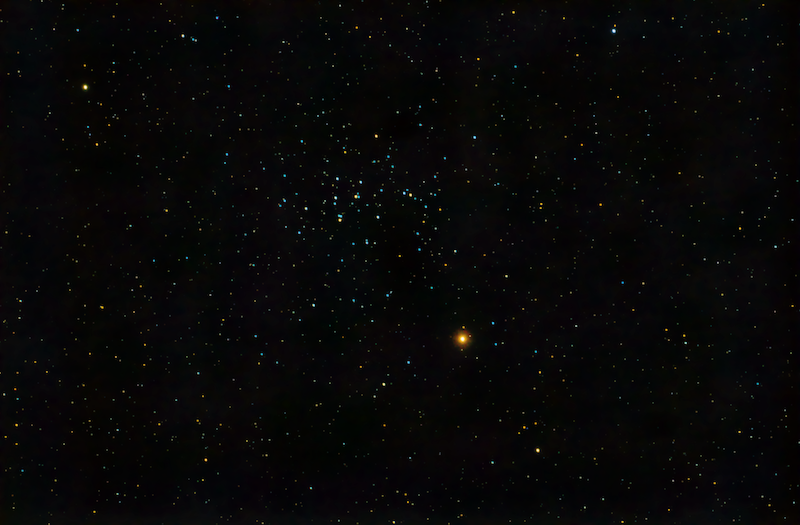Mars and the Beehive
On the evenings of June 1 and 2, 2023, you can spot Mars as it passes through a background star cluster known as the Beehive in Cancer the Crab. In fact, Mars appears as a big, bright ruby surrounded by tiny diamonds of distant stars.
First, to find Mars, look for brilliant Venus in the west, which at magnitude -4.3, wants to steal the show. You may also notice two bright stars strung out to one side of Venus. These are the twin stars in Gemini, Pollux and Castor. Above Venus and this duo is a bright, reddish light … that’s Mars. And if you’re in a dark-sky site or have binoculars, you can spot the smattering of stars beside the red planet.

A closer look at the Beehive star cluster
You’ll want binoculars to get a good look at just some of the 1,000 stars in the Beehive. While you can spot the cluster with your eyes alone, they will appear as a misty patch. However, with optical aid, the true nature of this star cluster comes alive.
The stars in this cluster lie about 577 light-years distant. So when you gaze at the Beehive, think about how many planets might reside among these 1,000 stars. We already know of at least two (Pr0201b and Pr0211b).

Do you have a photo to share? Submit it at EarthSky Community Photos. We sure enjoy seeing them.

Bottom line: Spot Mars and the Beehive star cluster together on June 1 and 2, 2023. You’ll want binoculars to get a good view of the starry cluster making a sparkling background for the red planet.
Want to see more night sky events? Visit EarthSky’s night sky guide
Our charts are mostly set for the northern half of Earth. To see a precise view from your location, try Stellarium Online.
The post Mars and the Beehive! See them together on June 1 and 2 first appeared on EarthSky.
from EarthSky https://ift.tt/9b0ZgTR
Mars and the Beehive
On the evenings of June 1 and 2, 2023, you can spot Mars as it passes through a background star cluster known as the Beehive in Cancer the Crab. In fact, Mars appears as a big, bright ruby surrounded by tiny diamonds of distant stars.
First, to find Mars, look for brilliant Venus in the west, which at magnitude -4.3, wants to steal the show. You may also notice two bright stars strung out to one side of Venus. These are the twin stars in Gemini, Pollux and Castor. Above Venus and this duo is a bright, reddish light … that’s Mars. And if you’re in a dark-sky site or have binoculars, you can spot the smattering of stars beside the red planet.

A closer look at the Beehive star cluster
You’ll want binoculars to get a good look at just some of the 1,000 stars in the Beehive. While you can spot the cluster with your eyes alone, they will appear as a misty patch. However, with optical aid, the true nature of this star cluster comes alive.
The stars in this cluster lie about 577 light-years distant. So when you gaze at the Beehive, think about how many planets might reside among these 1,000 stars. We already know of at least two (Pr0201b and Pr0211b).

Do you have a photo to share? Submit it at EarthSky Community Photos. We sure enjoy seeing them.

Bottom line: Spot Mars and the Beehive star cluster together on June 1 and 2, 2023. You’ll want binoculars to get a good view of the starry cluster making a sparkling background for the red planet.
Want to see more night sky events? Visit EarthSky’s night sky guide
Our charts are mostly set for the northern half of Earth. To see a precise view from your location, try Stellarium Online.
The post Mars and the Beehive! See them together on June 1 and 2 first appeared on EarthSky.
from EarthSky https://ift.tt/9b0ZgTR

Aucun commentaire:
Enregistrer un commentaire